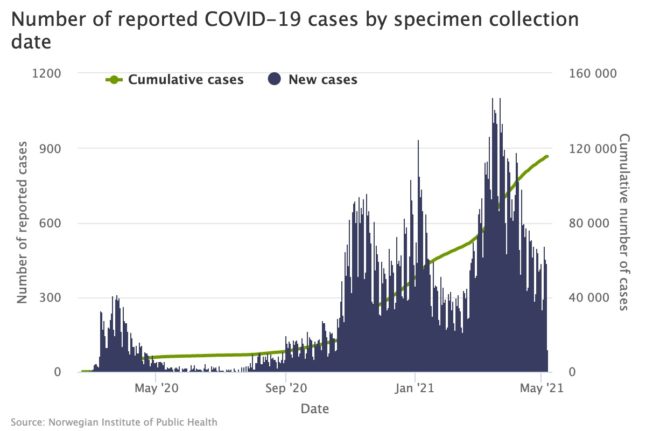Expert committee to deliver its verdict on the AstraZeneca and Johnson & Johnson vaccines
The committee was set up to make a comprehensive risk assessment of both vaccines and whether or not they should be used in Norway’s vaccination program.
AstraZeneca has been on pause since March 11th due to suspected serious side effects, including blood clots.
Johnson & Johnson had voluntarily delayed its European rollout over concerns due to reported blood clots.
READ MORE: Norway delays final decision on withdrawal of AstraZeneca vaccine
The two vaccines are based on the same technology.
If Norway decides against using the two vaccines in its vaccination program, then the doses could either be withdrawn entirely or only be administered to those who voluntarily opt to receive AstraZeneca and Johnson & Johnson.
The committee will deliver its verdict to government later today. The committee includes doctors, statisticians, lawyers and economists.
Minister believes immigrants in Norway should be moved forward in the vaccine queue
Culture Minister Abid Raja said that government should prioritise certain immigrant groups for vaccination.
“The health authorities should consider whether certain immigrant groups should be given priority in the vaccine queue when Pakistani immigrants, for example, have a 24 percent higher hospital admission rate,” Raja told state broadcaster NRK.
Research has shown that some immigrant groups are more likely to develop serious illness and have higher rates of mortality when they are infected with Covid-19. The research indicated that people from South Asian backgrounds are more likely to develop a more severe illness with Covid-19.
Director of Infection Control at the Norwegian Institute of Public Health, Geir Bukholm, has said the institute is constantly assessing how vaccines should be prioritised.
115 students infected with Covid-19 after party
A total of 115 Russ students have been infected following a party in Rogland, Western Norway
Russ is considered a rite of passage for final year high school students in Norway and takes place between the end of April and May 17th. Students travel around in special party busses and take part in celebrations and parties before taking their final exams.
In addition to the 115 students that have been infected, 16 close contacts have also contracted Covid-19.
Infection is believed to have spread when 1,000 Russ students travelled to a party.
309 cases of Coronavirus registered in Norway
309 new cases of Covid-19 were registered in Norway on Sunday.
This is 102 fewer cases than the 7-day average of 411.
63 new cases of coronavirus were recorded in Oslo
The R-number or reproduction rate in Norway is currently 0.7. This means that the pandemic is receding in Norway as for every ten people that are infected, they will, on average, only infect another seven people.




 Please whitelist us to continue reading.
Please whitelist us to continue reading.
Member comments